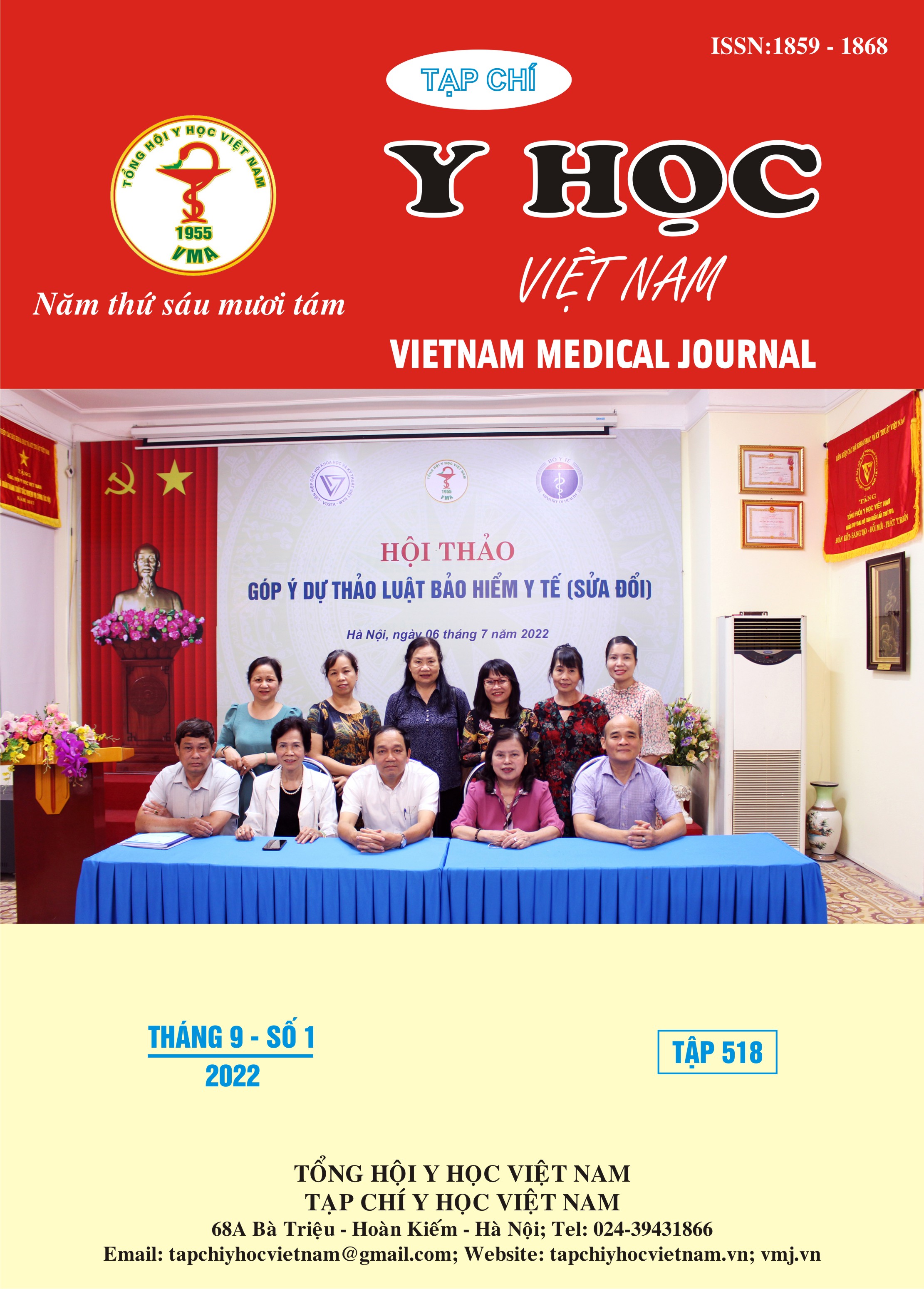ASSESSING QUALITY OF LIFE IN PATIENTS WITH GERD (GASTROESOPHAGEAL REFLUX DISEASE) USING QOLRAD QUESTIONNAIRE
Main Article Content
Abstract
Objective: To assess the quality of life of patients with gastroesophageal reflux disease by using the QOLRAD questionnaire. Methods: A cross-sectional study on 323 patients with gastroesophageal reflux disease in Hanoi Medical University Hospital from July to December 2021. All patients were assessed for quality of life according to the QOLRAD questionnaire. Results: The vitality domain (3.75± 1,60) most affected by symptoms of GERD, next to the eating/drinking disorders (4.59±1,46), sleeping disorders (4.83±1,71), emotional distress (5.43±1,43) and physical/pocial function (6.09±1,08). Age group with the domain of sleep disturbance, BMI with the of eating/eating status, duration of GERD with the domain of vitality, economic characteristics and number of meals per day with most of the domain of quality of life involved were statistically significant (p < 0.05). Conclusion: The QOLRAD questionnaire is reliable and meaningful in assessing the impact of GERD on the quality of daily living of patients.
Article Details
Keywords
GERD, quality of life, QOLRAD
References
2. Wiklund I. Review of the Quality of Life and Burden of Illness in Gastroesophageal Reflux Disease. Dig Dis. 2004;22(2): 108-114.
3. Kulich KR, Madisch A, Pacini F, et al. Reliability and validity of the Gastrointestinal Symptom Rating Scale (GSRS) and Quality of Life in Reflux and Dyspepsia (QOLRAD) questionnaire in dyspepsia: A six-country study. Health Qual Life Outcomes. 2008;6(1):12.
4. Pace F, Negrini C, Wiklund I, et al. ITALIAN ONE INVESTIGATORS STUDY GROUP. Quality of life in acute and maintenance treatment of non-erosive and mild erosive gastro-oesophageal reflux disease. Aliment Pharmacol Ther. 2005;22(4):349-356.
5. Nocon M, Labenz J, Jaspersen D, et al. Health-related quality of life in patients with gastro-oesophageal reflux disease under routine care: 5-year follow-up results of the ProGERD study. Aliment Pharmacol Ther. 2009;29(6):662-668.
6. Sawaya RA, Macgill A, Parkman HP, et al. Use of the Montreal global definition as an assessment of quality of life in reflux disease. Dis Esophagus Off J Int Soc Dis Esophagus. 2012;25(6):477-483.
7. Ponce J, Beltrán B, Ponce M, et al. Impact of gastroesophageal reflux disease on the quality of life of Spanish patients: the relevance of the biometric factors and the severity of symptoms: Eur J Gastroenterol Hepatol. 2009;21(6):620-629.
8. Kahrilas PJ, Jonsson A, Denison H, et al. Impact of regurgitation on health-related quality of life in gastro-oesophageal reflux disease before and after short-term potent acid suppression therapy. Gut. 2014;63(5):720-726.


